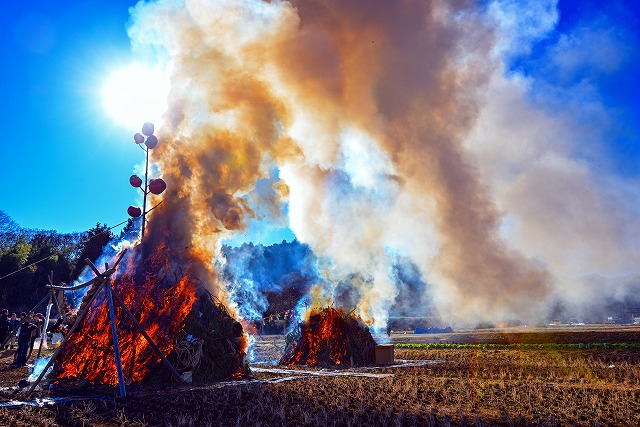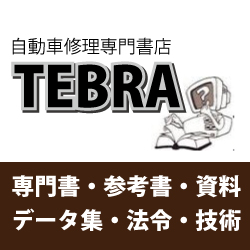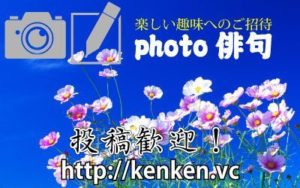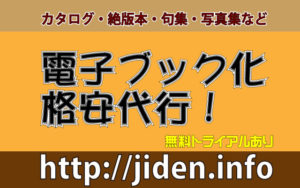
寒さが厳しさを増す1月の終わり、日本では「どんど焼き」という伝統的な行事が行われます。この行事は、寒さを払い、新たな年を迎えるために行われるもので、その歴史は古く、多くの人々に親しまれています。今回は、「どんど焼き」について詳しく探求し、その意義や魅力について考えてみましょう。
「どんど焼き」とは、主に関西地方で行われる行事で、1月15日に近い土曜日に行われることが多いですが、地域によっては異なる日に行われることもあります。この日、人々は竹や松明を束ねて作った「どんど」(または「とど」)と呼ばれるものを灯し、それを燃やすのが「どんど焼き」の主要な行動です。火が燃え盛る中、家族や友人と集まり、温かい飲み物や食べ物を楽しむのが一般的です。
「どんど焼き」の起源は古代の風習にさかのぼります。寒い季節に神仏への感謝と冬の寒さを追い払うために火を焚くという行事が、次第に「どんど焼き」として定着していったのです。また、これは新年の始まりを祝う行事とも言えます。新年に入る前に悪い縁や不運を焼き尽くし、清々しい気持ちで新しい一年を迎えるために行われるのです。
「どんど焼き」の魅力は多岐にわたります。まず、火を灯すこと自体が、寒さをしのぎ、暖かさを感じることができる喜びを提供しています。特に寒冷地域では、この行事が待ち遠しく、心地よい暖かさをもたらすとともに、冷たい冬の日々をほんの少し温かくしてくれます。
さらに、「どんど焼き」はコミュニティを結ぶ素晴らしい機会でもあります。家族や友人、近隣の人々が集まり、一緒に火を囲んで楽しむことで、絆が深まります。また、地域ごとに特有の伝統や祭りもあり、地域のアイデンティティを感じることができるでしょう。
さらに、「どんど焼き」には宗教的な要素も含まれています。多くの場合、神社や寺院で行われ、神仏への感謝や願い事を込めて火が焚かれます。この瞬間は、精神的な安定と新しい年に向けた希望を持つ機会でもあります。
最後に、「どんど焼き」は日本の伝統文化の一部として、新しい世代に伝えられています。子供たちは祖父母や親と一緒に参加し、伝統を守りながら新しい年を迎えることの大切さを学びます。このように、文化としての「どんど焼き」は将来にも続いていくでしょう。
「どんど焼き」は、寒さや冷たさを払い、新しい年を温かく迎える日本の素晴らしい伝統行事です。火を囲みながら家族や友人と過ごす楽しみ、地域の結びつきを感じる喜び、そして宗教的な要素や文化的な継承といった多くの魅力があります。日本の冬の風物詩として、ぜひ一度体験してみてはいかがでしょうか。
(ChatGPT 勝爺)2024-01
At the end of January, when the weather gets colder, a traditional event called "Dondo-yaki" is held in Japan. This event is held to ward off the cold and usher in a new year, and it has a long history and is loved by many people. This time, let's explore "Dondoyaki" in detail and think about its significance and charm.
Dondoyaki is an event that is mainly held in the Kansai region, and is often held on a Saturday close to January 15th, but it may be held on a different day depending on the region. On this day, people light something called a ``dondo'' (or ``todo'') made from bundles of bamboo and torches, and the main act of ``Dondo-yaki'' is to burn it. It is common to gather with family and friends and enjoy hot drinks and food while the fire is roaring.
The origin of "Dondo-yaki" dates back to ancient customs. The event of lighting a fire during the cold season to give thanks to the gods and Buddha and to drive away the winter cold gradually became established as ``Dondo-yaki.'' It can also be seen as an event to celebrate the beginning of a new year. It is held to burn away bad luck and bad luck before entering the new year and welcome the new year with a fresh feeling.
The appeal of "Dondoyaki" is wide-ranging. First of all, lighting a fire itself provides the joy of being able to beat the cold and feel warm. Particularly in colder regions, this event is much-awaited, brings a nice touch of warmth, and makes the cold winter days just a little warmer.
Additionally, Dondoyaki is a great opportunity to bring the community together. Family, friends, and neighbors gather together and enjoy the fire together, deepening bonds. Additionally, each region has its own unique traditions and festivals, giving you a sense of regional identity.
Furthermore, "Dondo-yaki" also contains religious elements. It is often held at shrines and temples, where fires are lit to express gratitude and wishes to the gods and Buddha. This moment is also an opportunity to have mental stability and hope for the new year.
Finally, "Dondo-yaki" has been passed down to new generations as part of Japan's traditional culture. Children participate with their grandparents and parents and learn the importance of welcoming the new year while preserving traditions. In this way, "Dondo-yaki" as a culture will continue into the future.
Dondo-yaki is a wonderful traditional Japanese event that warms the new year and shakes off the cold. The joy of spending time with family and friends around the fire, the joy of feeling connected to the community;




